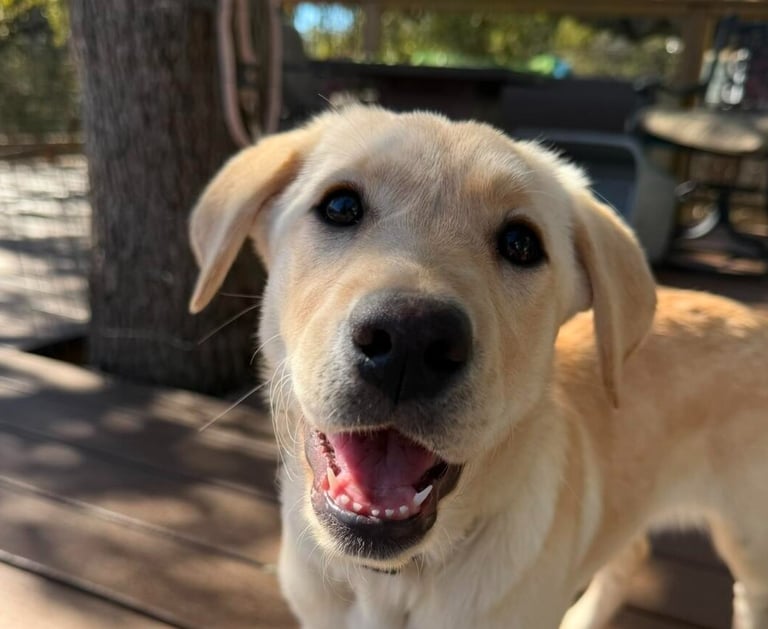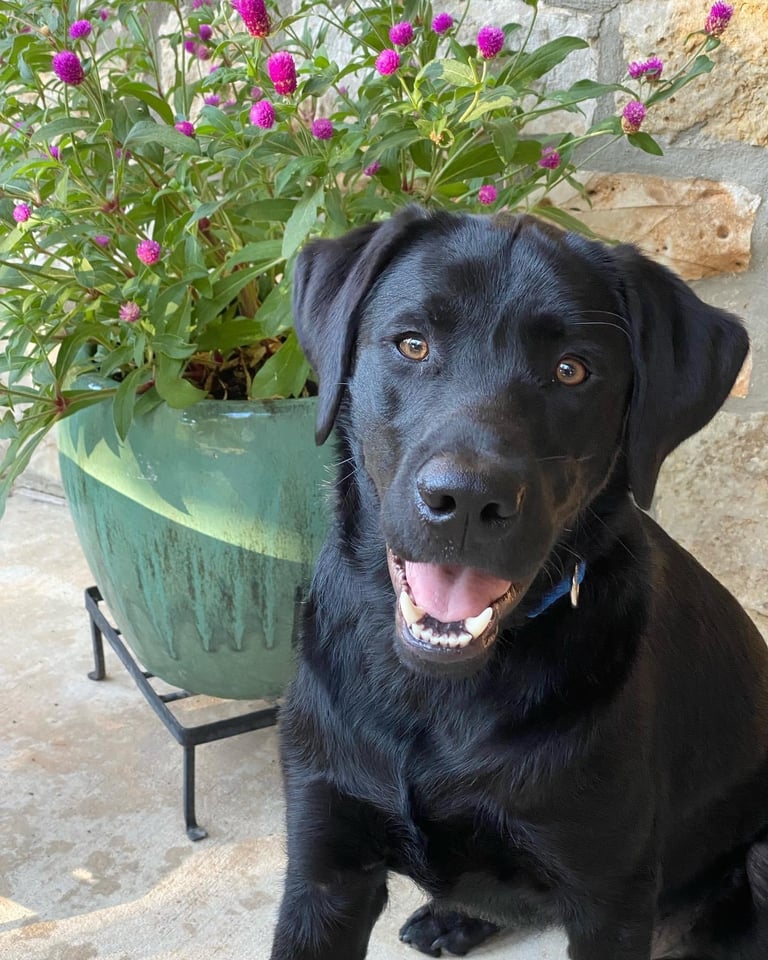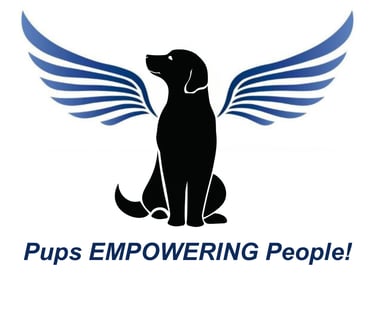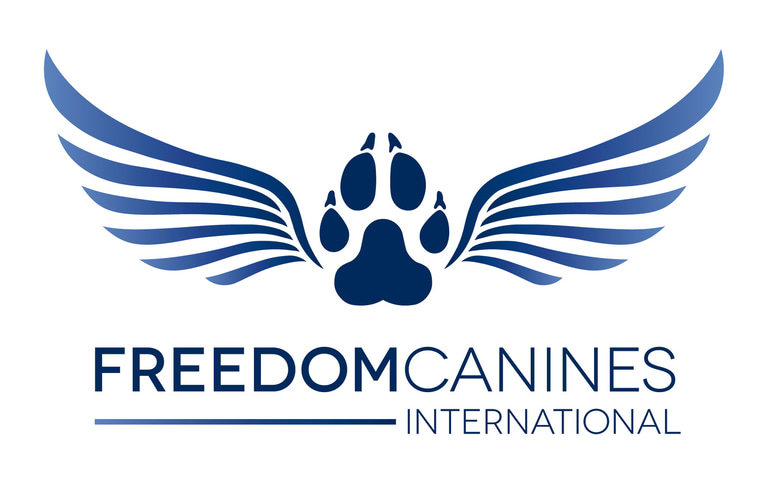Foster Care
Foster homes are one of the quiet heroes behind every successful service dog. Whether you're available for a weekend or want to play a hands-on role in a dog’s advanced training journey, there’s a fostering path for you. When you foster, you're helping a dog grow into their full potential—and you're directly empowering the future client who will one day rely on them.
Foster a Dog. Fuel a Future.
Types of Fostering at Freedom Canines
1. Temporary Foster Care (Short-Term Relief)
Temporary fosters step in when a dog’s regular raiser or advanced trainer is out of town. These pups may be any age or stage of training, and your role is to provide care and consistency for a few days to a few weeks. This is a great low-commitment way to get started and see if fostering is a good fit for you!
2. Advanced Training Foster Homes (Ongoing Commitment)
Advanced training foster homes care for our adult dogs during their final stage of preparation before placement. These dogs live with you at home but need to be dropped off at Wimberley High School 3–5 days a week for their structured training. While we do our best to coordinate carpools, reliable weekday transportation is an important part of this commitment.


❤️ Can You Really Give Them Up?
It’s a question we hear all the time—“How could you give them up?”
And the answer is simple: you do it with pride.
Foster families often find themselves amazed by how much love they have to give. While you may fall in love with your first dog, you’ll be just as excited to meet your second… and your third. Each one has a different personality, a different story—and all of them are headed toward changing lives. There’s nothing quite like seeing a pup you helped raise go on to become someone’s lifeline.
Frequently asked questions
How long is a typical foster commitment?
Temporary fosters might care for a dog anywhere from 2–14 days. Advanced training fosters usually commit to a dog for several months.
Can I choose what type of foster I do?
Yes! We’ll help match you to the right type of fostering based on your schedule and comfort level.
Can I foster if I have other pets?
Absolutely! Most of our foster homes have other dogs. Your own dogs just need to be friendly with others—they don’t need to follow any special rules. Cats, chickens, and other animals are welcome too (bonus socialization for our pups!). Only the foster dog must follow our training guidelines.
What types of rules does a foster dog have to follow in our home?
Foster dogs are expected to maintain the good manners they’ve learned in training. That includes:
No jumping on people or counters
Resting on dog beds, not furniture
Sleeping in a crate at night and when left home alone (crate provided)
Only being off-leash in fully fenced areas
These rules help prepare our pups for their future homes where consistency matters.
Do I need prior experience?
No. We provide training support and guidance. We just ask that you're patient, consistent, and willing to follow our care guidelines.
Do I have to take the dog into public?
Only if you’d like to! Advanced training fosters are not required to take dogs into public unless they commit to participating in public access training with us.
What does FCI cover for fosters?
We provide food, veterinary care, training equipment, and ongoing support. You provide love, structure, and transportation (if needed).
What if I need to travel or can’t care for the dog temporarily?
Just let us know—we’ll find short-term coverage for your foster pup.


💌 Ready to Foster?
Whether you’re ready to jump in or just exploring if fostering is right for you, we’d love to connect. If you have questions, don’t hesitate to reach out—we’re happy to chat and help you find the right fit.
📥 Apply to Foster
Click the link below to download the fostering application, then send your completed form to Laura Dalton:
📞 Laura Dalton: 512‑636‑0974
📧 laura.dalton.austin@gmail.com
Thank you for considering this meaningful role in the journey of a future service dog. You don’t just foster a dog—you help empower a person.
info@freedomcanines.org
512-648-1027


